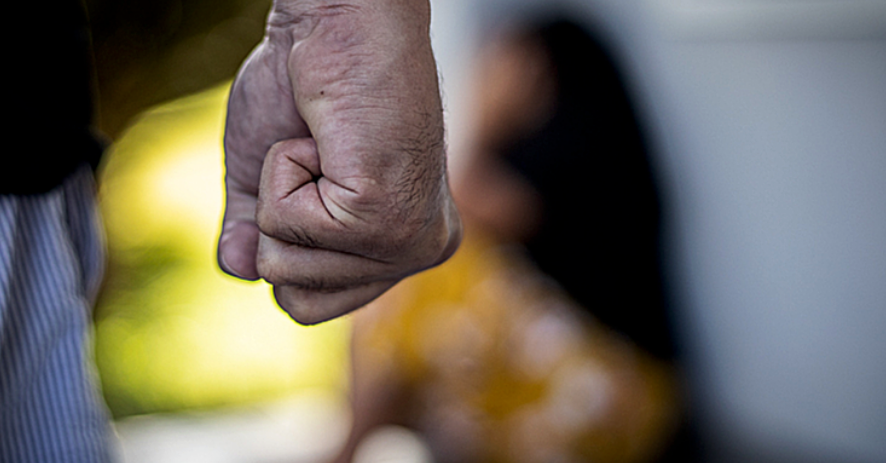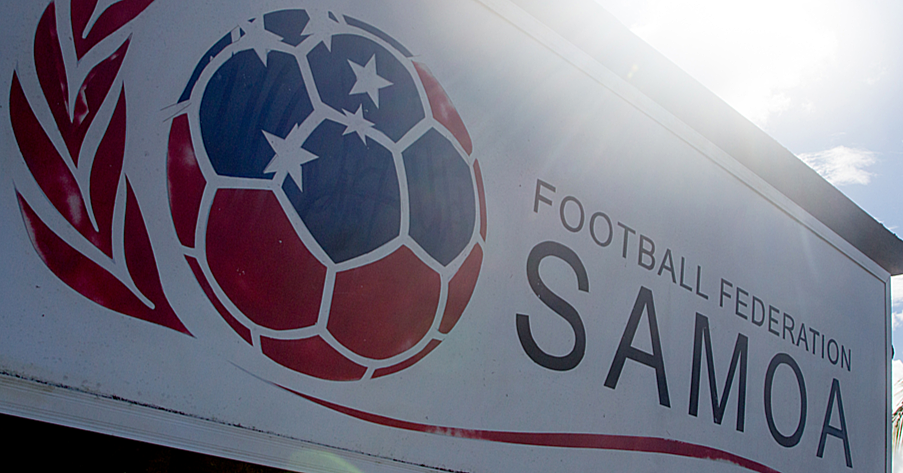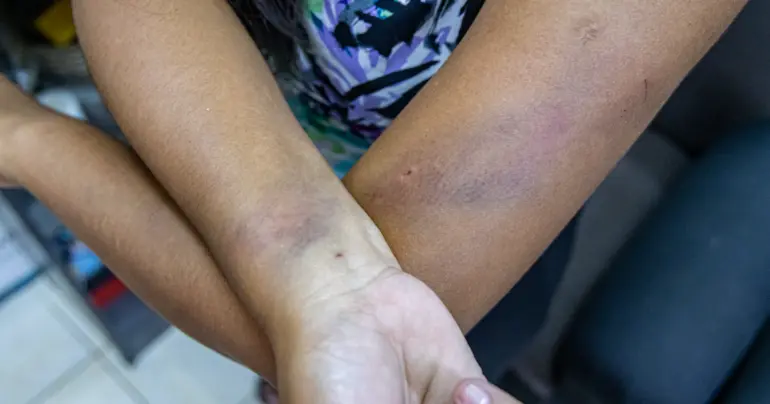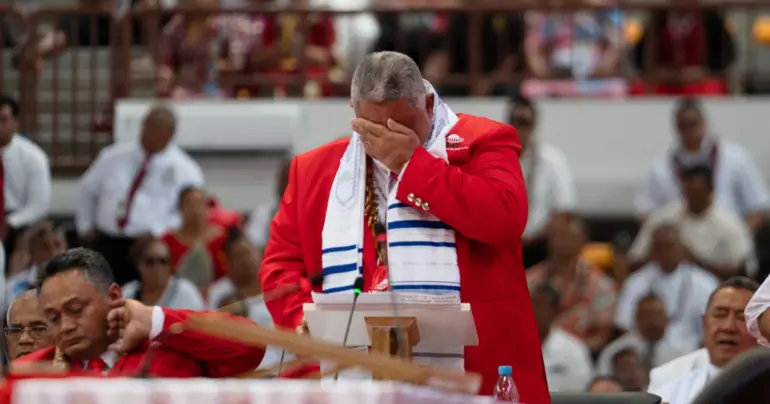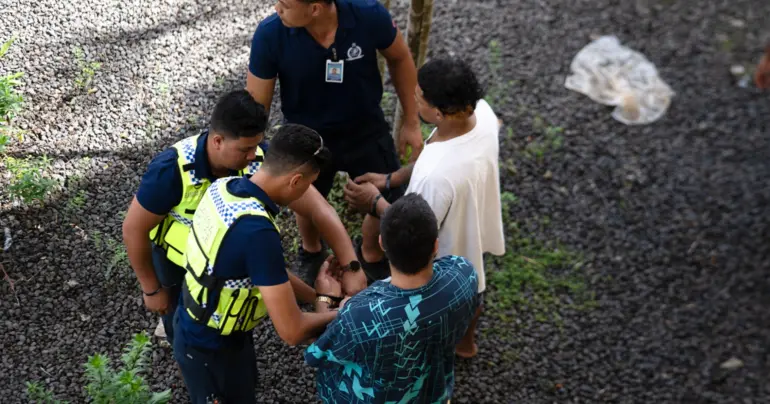Can the new Government tackle domestic violence?
 By The Editorial Board
•
16 August 2021, 6:00AM
By The Editorial Board
•
16 August 2021, 6:00AM
We don’t have to look far to be reminded of the scourge of domestic violence as a lot of the beatings occur behind closed doors, most likely by perpetrators who are known to the victims.
Tragically the survivors will live with the physical, mental and emotional abuse many years later, leaving loved ones deeply traumatised from the experience, and family members broken and scarred for life.
It is why we are not surprised with a recent assessment that the head of the United Nations in Samoa gave, in terms of the country’s progress in eliminating violence against women and girls in Samoa.
UN Resident Coordinator, Dr Simona Marinescu, told the Samoa Observer (Slow progress against domestic violence: UN) that the UN has had discussions with members of the civil society and the indications are that progress in tackling violence against women and girls in Samoa is slow.
“I had discussions with which we learned that progress remains slow and we spoke with the Samoa Victim Support Group, who actually made it very clear that sometimes they see numbers declining but high year level of physical harm that women and girls experience and children more broadly,” she said.
There have been cases of notoriety in recent years, which cast a shadow on the country’s ability to protect and save women and girls from abuse, even to this very day.
There’s the tragic case of a senior Government official and former Unit Trust of Samoa (U.T.O.S.) C.E.O. Sa'u Justina Faasamoa, whose husband Kolani Junior Lam was sentenced by the Supreme Court in December 2019 to mandatory life imprisonment for her murder.
The Court ruled that the accused – based on a report submitted during the proceedings by a pathologist – strangled his wife with his hands.
The late Sa’u was pronounced dead on arrival at the Moto’otua hospital on Sunday, 21 October 2018.
Three months later another woman, Frysna Rimoni, was shot in the face on 15 January 2019 by her partner Peter Tulaga. The Supreme Court six months later ruled the defendant guilty of attempted murder and jailed him for 28 years.
Presiding Supreme Court Justice Tafaoimalo Leilani Tuala said it was the worst case of intimate partner violence she has encountered, and the impact of the defendant’s actions are permanent and lifelong.
“Due to the actions of the defendant, Frysna has emotional, physical and psychological impacts which are lifelong and permanent,” Justice Tafaoimalo said.
“She will never be able to see again, she may never be able to smell or taste again – her face is permanently disfigured.
“She may never have children and may never be able to fend for herself.”
Eight months later another woman was tragically killed at a gas station in Malifa, after her husband stabbed her with a sharp object before taking his own life on Saturday, 7 March 2020.
The deceased woman, who was in her 20s, was identified as Fa'aselega Vailoaloa Tuna from Iva, Faasaleleaga Savaii and Sala'ilua.
The fact that the country is making slow progress in eliminating violence against women and girls in Samoa – despite the injection of US$4.3 million under the United Nations and European Union-supported Spotlight Initiative to address the – is a kick in the guts for survivors and families who live or will live with the consequences.
The funding support to Samoa, offered through the Spotlight Initiative, confirms the willingness on the part of donor partners to work with our Government to find long-term solutions.
But over 17 months after the launching of the Spotlight Initiative, which is primarily funded by a €500 million commitment from the EU, Dr Marinescu expressed concern that the number of cases haven’t dropped.
Nonetheless it is clear there needs to be a review of the EU-funded initiative to try to identify the policy bottlenecks and whether service delivery should be further streamlined, and the election of the Fa’atuatua i le Atua Samoa ua Tasi (F.A.S.T.) Government, headed by a woman Prime Minister could be a blessing in disguise.
From our standpoint, we have to agree with Dr Marinescu that the abuse of women and girls in Samoa has continued, despite the best intentions of the Spotlight Initiative through its interventions.
So what can a F.A.S.T. Government do different from its Human Rights Protection Party (H.R.P.P.) predecessor to get the desired outcomes?
The Spotlight Initiative ends 31 December 2022 so what are some of the achievable outcomes that can be ticked off within the next 16 months before the conclusion of the project?
Is this a project and issue that Prime Minister Fiame Naomi Mata’afa can personally take under her wing due to the respect she commands locally and internationally in order to attract support and promote change?
There are lots of questions on how this societal scourge can be tackled long-term and we are keen to hear how the new Government plans to move forward to save the lives of vulnerable women and girls.
 By The Editorial Board
•
16 August 2021, 6:00AM
By The Editorial Board
•
16 August 2021, 6:00AM




